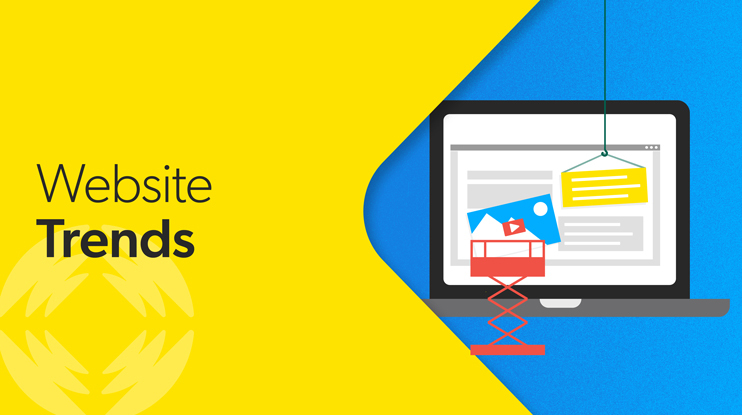Imagine this: A customer arrives on your website, full of anticipation. They’re ready to find answers, discover the perfect product, or learn something new. But instead of delight, they’re met with frustration — irrelevant search results, disjointed content, and a journey that feels anything but seamless. They leave, disappointed, and you’ve lost not just a potential sale but a chance to build trust and loyalty.
This is the hidden cost of “good enough” search and digital experiences. In today’s world, where every second and interaction counts, mediocrity isn’t just a missed opportunity — it’s expensive. The future belongs to businesses that recognize the power of search to transform customer experiences, drive revenue, and build lasting relationships.
As we look ahead to 2025, one thing is clear: the digital winners will be those who see their websites not as static destinations but as living, breathing ecosystems where search is the connective tissue. Let’s explore the trends shaping this future and how you can lead the charge.
1. The Generative Elephant in the Room
It’s hard to have a search trends list that doesn’t include the ongoing impact of the numerous generative tools flooding the market. Generative AI is reshaping the way searchers interact with not just online channels, but information as a whole. Because generative tools go beyond simple retrieval to also craft a response that is tailored to the end user, searchers are getting a taste of how far digital personalization can go.
The previous two years have focused on learning about generative AI — and now that companies have a better grasp on what the technology is, they’re experimenting with its potential. Yet many are struggling, because they lack the crucial architecture to achieve tangible ROI with generative applications.
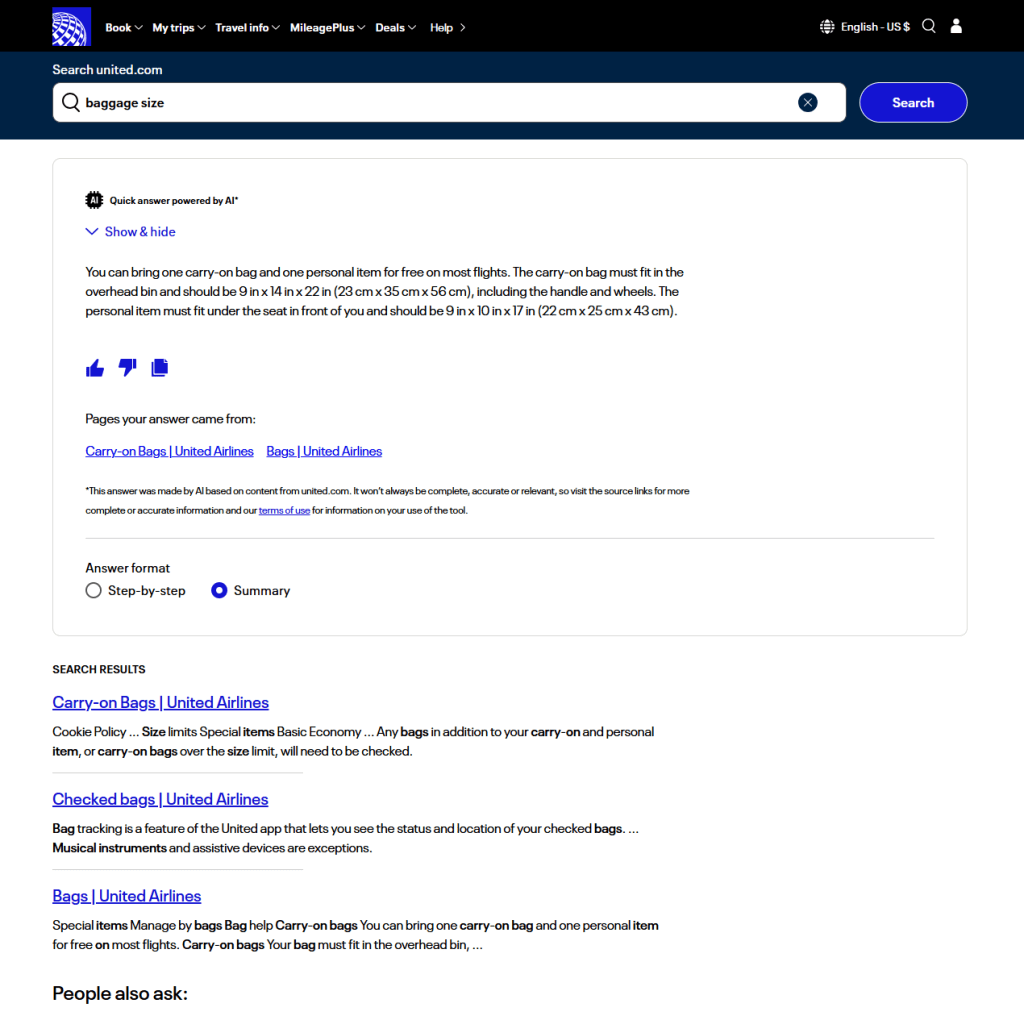
And what is that missing foundational architecture? Well, it is search.
Modern search platforms do a lot more than simply index and retrieve information (though they do that, too, and do it incredibly well). They also provide a fundamental infrastructure that success in generative AI requires, from providing access to knowledge all the way to refining that information into chunks and surfacing relevant chunks as they relate to the query or prompt at hand.
Businesses that partner third-party experts are finding that they achieve success much more quickly, with less risk, and are also fast-tracked for further innovation as digital experiences continue to evolve.
Relevant viewing: Under the Hood with United Airlines
2. Search: From “Good Enough” to Mission Critical
As stated previously, search has evolved beyond being just a tool. It’s crucial infrastructure needed for adopting cutting-edge technologies.
Even more than that? It’s now the connective tissue and nervous system of the digital experience. While speed matters, relevance reigns supreme. When people have a question, 42% go straight to a company’s website or help center. Their first stop? The search bar — and those that search are five times more likely to covert. These are high-intent users coming right to your door — so it pays to offer a search experience that goes beyond “good enough.”
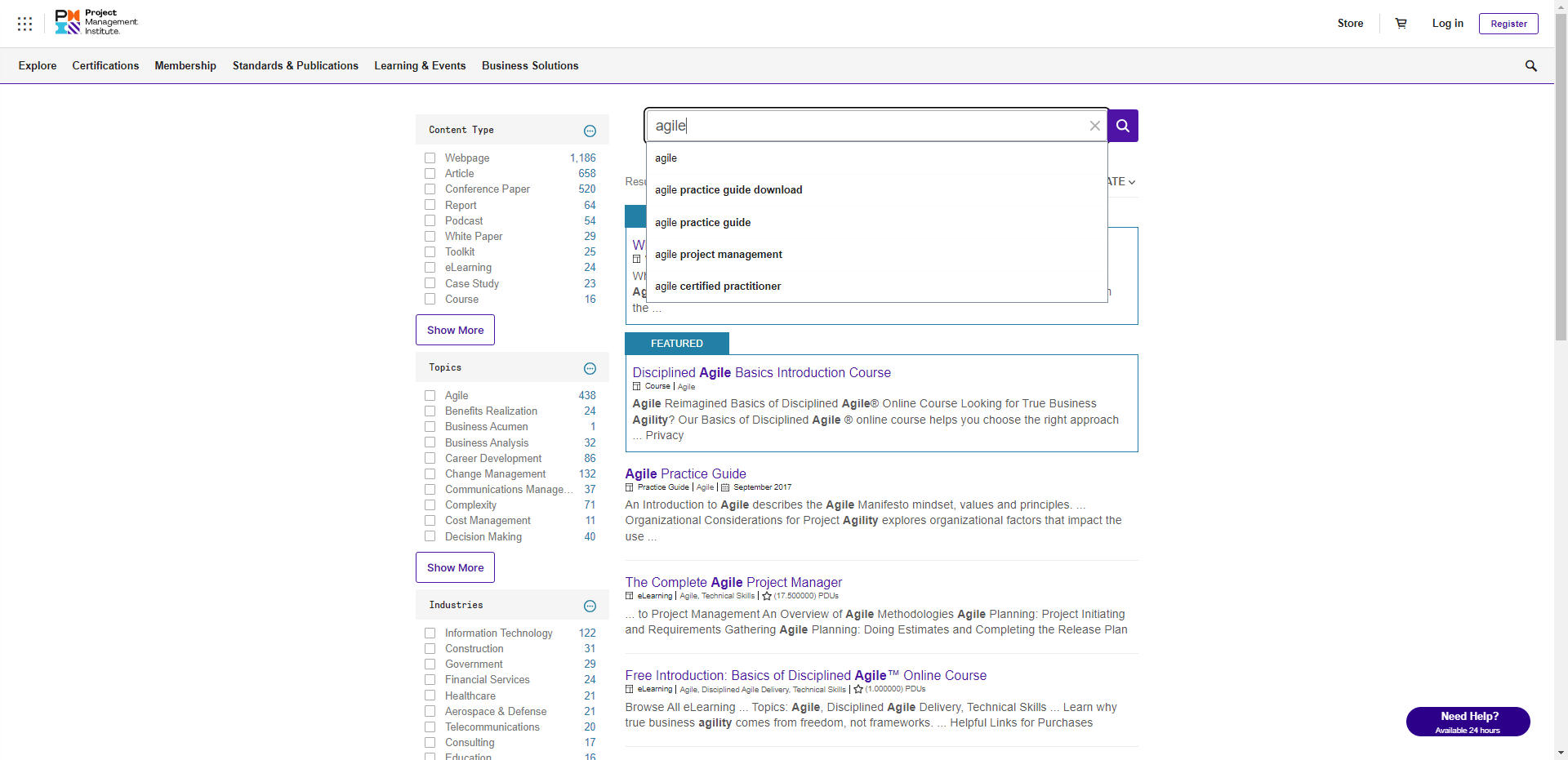
Simple federated search cannot deliver on the digital expectations of today’s users. They don’t see each search bar as an isolated entry point to just what they’re looking at, whether that’s your website, a service portal, or something else: they see a search bar as a front door to the whole of your digital experience.
When they search in one place and don’t find what they need, they’re not going to try a different channel. They’ll bounce off into web search like Google (or even into another generative experience like the one ChatGPT is beginning to offer) and right into the arms of one of your competitors.
Unified search infrastructure is the new standard. Modern search platforms that offer unified search bring content, knowledge, and answers together, making it accessible from a central point. These systems are also mindful of source permissions and security access — enabling businesses to offer personalized, secure experiences at scale.
Relevant reading: How PMI Used AI Search for Seamless Experiences
3. The Content Supply Chain: Fueling Relevance
Which came first – content, or search? Not technologically speaking, but in general a great search experience (or generative experience) hinges on the quality of content it can surface to its audiences. And while exact numbers vary on how much content the average enterprise creates, costs are estimated to be $40,000 to $60,000 (or more) a month.
All of that is wasted when that content cannot be found. The digital ecosystem thrives when businesses maintain a robust content supply chain, ensuring their digital assets — like knowledge articles, product descriptions, videos, guides and unstructured assets like PowerPoint or Word files — are findable, relevant, and current.
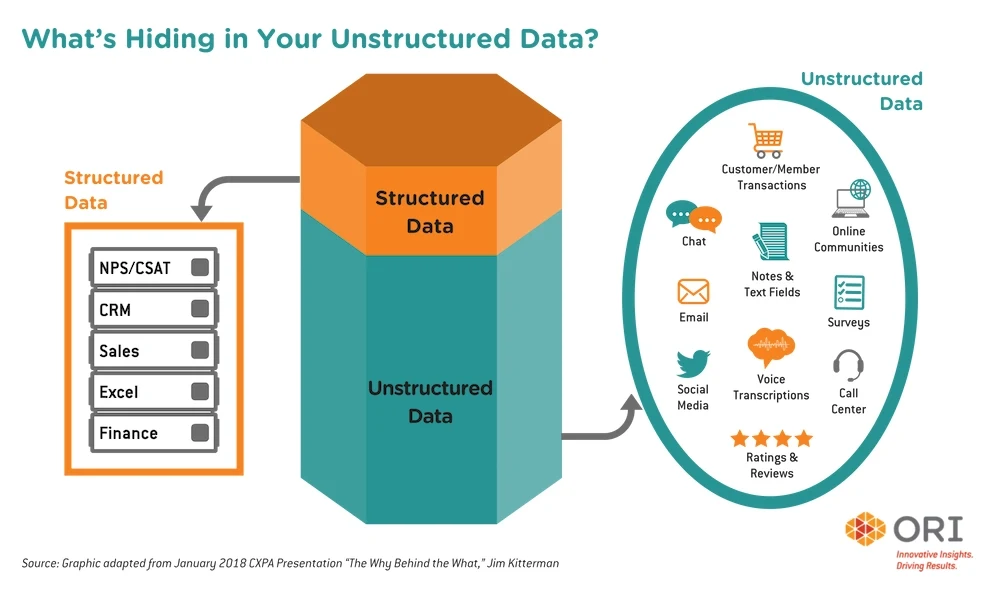
The challenge for many enterprises isn’t simply automation, but aligning their content strategy with user needs. An effective content supply chain ensures:
- No content gaps: Every question or query a user might have is addressed proactively.
- Content in the right format: Search systems rely on well-structured, metadata-rich assets to deliver high-quality results.
In 2025, businesses must prioritize not just creating content but ensuring it seamlessly integrates into the digital experience. This highlights another area where an advanced search platform can also help — in-depth search analytics that show exactly what searchers are looking for, highlighting those needs and gaps.
4. Consistency and Personalization at Scale
Personalization remains a top priority — but it’s no longer just about recommending the right product. In 2025, personalization will be expected to span throughout an entire brand experience, helping customers feel seen, understood, and valued. According to McKinsey, companies that get personalization right achieve 40% faster revenue growth compared to those that don’t.
However, personalization is limited to the cohesiveness of a brand experience. A personalized journey that leads users into disconnected channels — say, inconsistent search results or conflicting recommendations — erodes trust.
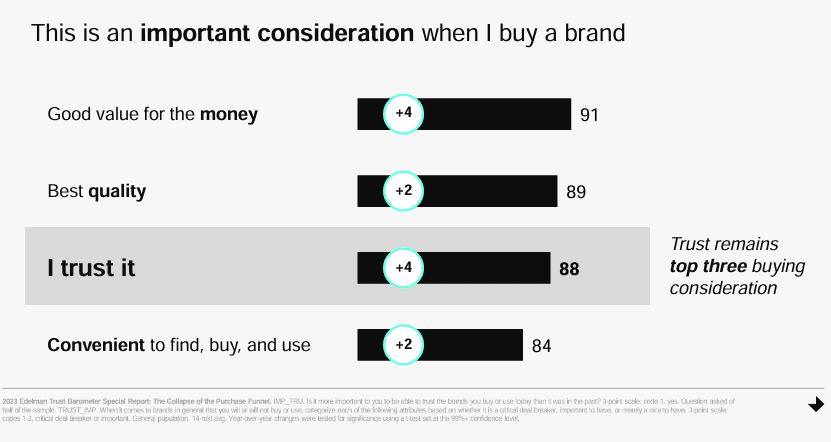
According to Edelman’s Trust Barometer, 88% of consumers say the level of trust they have in a brand determines their loyalty. In 2025, the traits of winning brands include:
- Maintain transparency: Explicitly communicate how customer data is used.
- Deliver continuity: Ensure branding, tone, and functionality are uniform everywhere.
The solution? Unifying a ubiquitous feature that appears across systems and platforms — like, say, search? As stated before, search can provide a throughline across the content and touchpoints where customers and prospects expect this cohesion and personalization.
5. Security and Data Ethics: Transparency as a Competitive Edge
While data privacy is paramount, customers are increasingly willing to share personal information in exchange for better online experiences — if they trust how it’s being used. According to a PwC report, nearly 50% of consumers would share more personal data with companies they trust to use it transparently and responsibly.
Businesses in 2025 must adopt a privacy-first approach:
- Explain data use upfront: Show users how their information enhances their experience (e.g., personalized product recommendations or quicker support).
- Fortify security protocols: Protect data with enterprise-grade systems to ensure compliance with global standards like GDPR and CCPA.
Balancing personalization with ethical data use positions brands as trustworthy, further enhancing their ability to deliver exceptional experiences. Modern search platforms adopt stringent, enterprise-grade security that both protects company and customer information from external bad actors. They also must respect and inherit source repository permissions, upholding need-to-see/need-to-know access as the business built it.
6. Search Analytics: Learning from the Gold Mine
People don’t lie to the search box. Queries, phrases, and questions offer businesses a gold mine of customer insights, reflecting user intent, pain points, and preferences in real time.
In 2025, search analytics will move from reactive dashboards to proactive intelligence that helps businesses:
- Identify content gaps: Queries that consistently lead to zero results could signal access issues or highlight opportunities for content creation.
- Refine personalization strategies: Search data reveals behavioral trends that can inform personalized experiences.
- Predict demand: Seasonal or regional spikes in search queries offer clues to future customer needs.
Companies that act on search analytics gain a data-driven edge, improving both operational efficiency and customer satisfaction.
Bringing It All Together
Success in 2025 will depend on an enterprise’s ability to:
- Elevate search relevance to deliver precise and intent-driven results.
- Feed their digital experiences with a robust content supply chain that addresses user needs.
- Scale personalization while maintaining a cohesive and trustworthy brand experience.
- Balance data ethics and security with personalized, transparent customer journeys.
- Harness the gold mine of search analytics to anticipate and meet customer expectations.
Search is no longer just a utility; it’s a strategic differentiator. By building seamless, personalized, and trustworthy digital experiences, businesses will not only meet expectations but set the standard for the future.
Ready to lead the way? Check out how Coveo can uplevel and enhance your digital experience by browsing our on-demand demo hub.
Or, contact Coveo today for a personalized demo geared around your unique needs.

